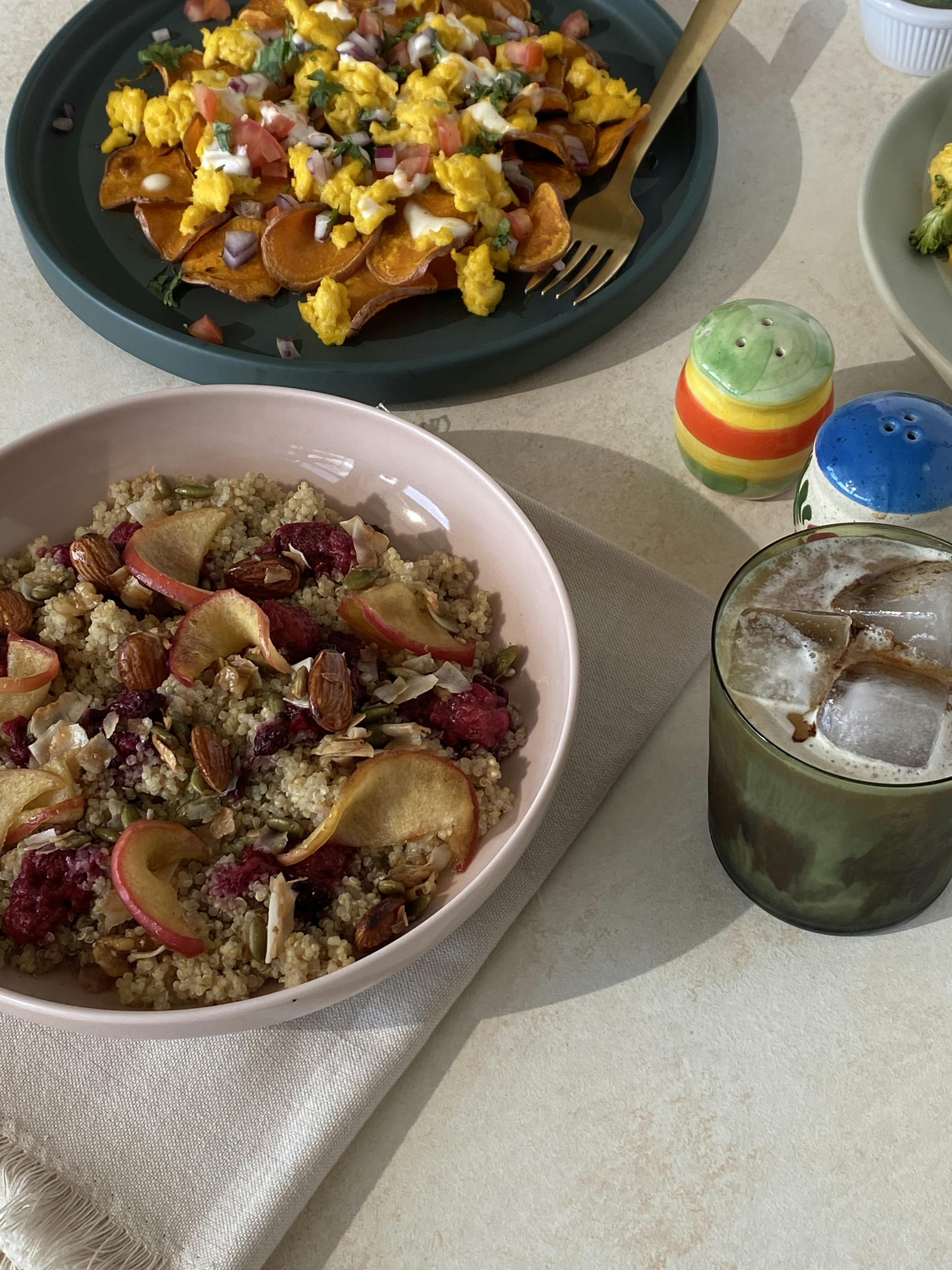
Eating Seasonal Ingredients Is More Than Festive
By Danielle McAvoy
October 10, 2023
The first thing I think when anyone mentions fall is ‘yassss, pumpkin season!’ If you live somewhere with seasonal changes, they are defined by food as much as the weather. At Territory, we’ve always prioritized seasonal ingredients in our meals, but we’re excited to take a more intentional approach to seasonal eating this year.
Beginning this October, we’ll feature a few distinctly seasonal meals across each of our menus. This means more seasonally-inspired flavors and concepts as well as more meals with locally seasonal ingredients.
While eating seasonal foods gets us feeling festive as we transition from one season to the next, there are actually biological reasons why we eat certain foods at certain times of the year.
Here’s a breakdown of how foods sync with our changing nutritional needs by season.
Fall: Pumpkins, Sweet Potatoes, Squash And Apples
Fall is filled with deep orange colored vegetables such as pumpkin, sweet potatoes, butternut and acorn squash. The orange color comes from beta-carotene, which is a nutrient our body converts into Vitamin A. Vitamin A is essential for eye health, particularly night vision. Being able to see well at night is increasingly important in the fall as it starts to get dark earlier. Eating the orange-colored vegetables of fall not only feels festive, but actually helps us to see better as we spend more and more waking hours in the dark.
Apples, another fall food icon, are one of the most important fruit sources of polyphenols, or plant compounds that act as antioxidants. Antioxidants help neutralize and clean up the highly reactive molecules called free radicals that float around our body causing damage to cells, illness, and premature aging. One of the most common sources of free radicals is sun exposure. Apples can help protect our cells from damage by cleaning up the free radicals created by summer’s sunbathing.
Winter: Oranges, Grapefruit, And Broccoli
The citrus fruits of winter, like oranges and grapefruits, are very high in Vitamin C. Vitamin C is one of the most important nutrients for keeping the immune system healthy. We need a particularly strong immune system during the winter cold and flu season to avoid getting sick. Eating citrus is a great way to boost the immune system during the season when it’s needed the most.
Broccoli, like most dark green veggies, is packed full of nutrients. But as far as winter vegetables go, it is one of the best sources of fiber. Fiber is critical for a healthy digestive system and also helps to lower the bad cholesterol. Digestive health and cholesterol levels are more likely to suffer when we eat fattier, heavier meals, such as we do during the winter. Pairing roasts and meaty stews with broccoli is a good way to keep your gut healthy and help prevent increases in cholesterol during a time of year when we naturally eat more fatty foods.
Spring: Arugula and Peas, please
One of the first signs of garden life in the spring is arugula. Arugula is thought to support our body’s natural detox process. As we transition out of a winter filled with heavier foods and less outdoor activity, arugula can help support our body’s “spring cleaning.”
Peas, another spring crop, are also good for the transition out of winter because they are high in insoluble fiber and low in calories. Insoluble fiber can help keep your gut clean and moving, and also makes you feel full and satisfied after eating. Because peas are also low in calories, feeling full after eating them can help if you’re trying to shed a couple pounds after a long winter.
Summer: Watermelon And Tomatoes On Repeat
It’s not summer without thick slices of fresh, juicy watermelon. Watermelons are made of 92% water, making them an incredibly hydrating snack or addition to a cookout. It is easy to get dehydrated over the summer since it’s hot and we sweat. Eating watermelon not only makes it feel like summer, but actually helps us keep us hydrated in the hottest season.
Tomatoes, another summer staple, are rich in the nutrient lycopene. In the tomato plant, lycopene is involved in the plant’s natural sun protection system. Lycopene absorbs UV light, almost acting as a sunscreen and protecting the plant from sun damage. When we eat tomatoes, the lycopene can also help protect our skin from sun damage. Tomatoes are not a sunscreen replacement, but another cool way that the produce of the season syncs with our biological needs.
At Territory, we’re excited to feature more functional seasonal ingredients in your meals. Be on the lookout for the meals with the “seasonal” tag on our menu.